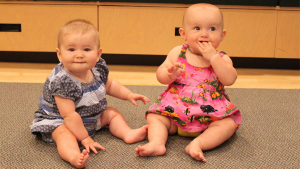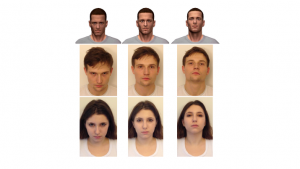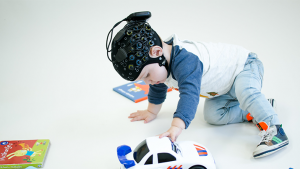Hiring committees that don’t believe in gender bias promote fewer women
A new study by a Dr. Toni Schmader reveals that hiring committees who denied it’s a problem were less likely to promote women.
New study paves way for how we communicate climate change information
New research by Yu Luo and Dr. Jiaying Zhao seeks to encourage climate change action amongst both liberals and conservatives.
Babies can learn link between language and ethnicity
Eleven-month-old infants can learn to associate the language they hear with ethnicity, research from Dr. Janet Werker and Dr. Lillian May suggests.
Downward head tilt can make people seem more dominant
New research UBC psychology graduate student Zachary Witkower and Dr. Jessica Tracy found that subtle shifts of the head can have profound effects on social perception.
UBC Psychology researchers receive national research funding from NSERC
UBC Psychology researchers recently received new and continued funding through the Natural Sciences and Engineering Research Council of Canada (NSERC).
Lure of the ‘loot box’ looks a lot like gambling
An increasingly popular feature of modern video games is attracting gamers who share the beliefs and behaviours of problem gamblers, new UBC Psychology research has found.
Understanding word learning in the growing brain
Awarded a new device, psychology researchers hope to shed new light on how toddlers learn words.
Research excellence cluster forms at UBC to shine a spotlight on women’s health
The Research Excellence Clusters program at the University of British Columbia continues to support research across disciplines, linking the neuroscience community with experts across campus to ask big questions and solve big problems.
UBC research is exploring how hormones shape teens’ emotions over time
Teenage years can be a turbulent time, thanks to a sharp increase in hormones. What’s not known is the role these hormones, along with physical and social changes, have in the maturing teenage brain. UBC’s Social Health Lab has launched a new study to explore how sex hormones shape teens’ emotions over time. If you […]
Motherhood changes the brain, possibly forever
New research from UBC Neuroscience PhD candidate Rand Eid and colleagues shows reproductive experiences may change the trajectory of women’s aging across the lifespan









